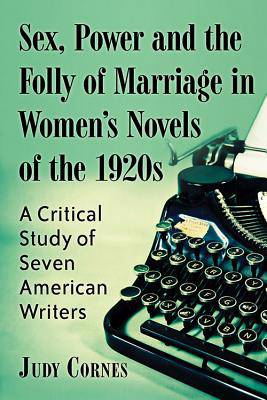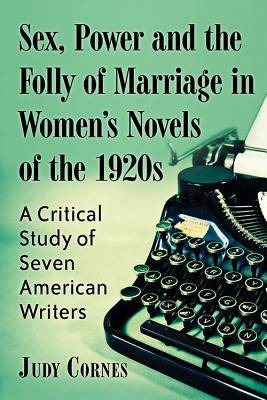
- Retrait gratuit dans votre magasin Club
- 7.000.000 titres dans notre catalogue
- Payer en toute sécurité
- Toujours un magasin près de chez vous
- Retrait gratuit dans votre magasin Club
- 7.000.000 titres dans notre catalogue
- Payer en toute sécurité
- Toujours un magasin près de chez vous
Sex, Power and the Folly of Marriage in Women's Novels of the 1920s
A Critical Study of Seven American Writers
Judy CornesDescription
The Americans experienced great social change in the decade following World War I. They were restless, often discontented, searching for the good life--the one promised to the generation who, cheered on by patriotic slogans and propaganda, enlisted to fight on European battlefields.
While young writers such as Hemingway and Fitzgerald romanticized the lives of Americans in postwar Europe and the U.S., a number of women authors in the 1920s looked through a darker lens. The novels of Edith Wharton, Willa Cather, Margaret Wilson, Edna Ferber, Ellen Glasgow, Dorothy Scarborough and Dawn Powell--set mainly in the 19th century--searched the past for the origins of postwar upheaval, especially with respect to the status of women.
Today, a few iconic male novelists of the 1920s are synonymous with the spirit and culture of the Jazz Age. This book focuses on their female contemporaries--largely neglected by both critics and readers--who remain relevant for their exploration of timeless social and psychological themes, the battle of the sexes and its tragic consequences.
Spécifications
Parties prenantes
- Auteur(s) :
- Editeur:
Contenu
- Nombre de pages :
- 248
- Langue:
- Anglais
Caractéristiques
- EAN:
- 9780786497317
- Date de parution :
- 26-10-15
- Format:
- Livre broché
- Format numérique:
- Trade paperback (VS)
- Dimensions :
- 150 mm x 229 mm
- Poids :
- 340 g







